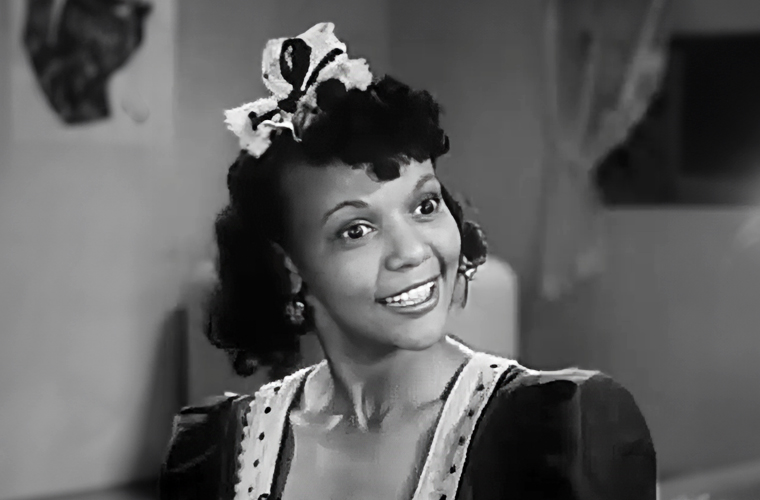Marguerite Whitten, also known as Margaret Whitten, was a remarkable actress who graced the screens of both “the golden era” of Hollywood and black cinema. Her versatility, natural talent, and magnetic presence made her a beloved figure in the entertainment industry. Despite the limitations and challenges she faced as a black actress during that time, her performances were always a testament to her skill, grace, and authenticity.
During an era when black women in movies were often relegated to stereotypical roles, Marguerite Whitten emerged as a trailblazer, introducing a different image of black women on screen. She portrayed characters who were sophisticated, intelligent, elegant, graceful, and sweet, challenging the narrow portrayals that were prevalent in mainstream cinema. Her presence in “A”-grade black movies, then known as “race” films, was a breath of fresh air for audiences who longed to see diverse and authentic representations of black characters.
Marguerite’s filmography is adorned with notable performances, showcasing her range and depth as an actress. In “Spirit of Youth” (1938), “Two-Gun Man from Harlem” (1938), “Mystery In Swing” (1940), and “Mr. Smith Goes to Washington” (1939), she delivered excellent performances that resonated with black audiences. Her ability to embody her characters with mind, heart, and soul was evident in every role she undertook, captivating viewers with her authenticity and emotional depth.






While mainstream Hollywood movies often presented challenges for black performers, Marguerite Whitten’s talent transcended the limitations imposed by stereotypical roles. Despite the constraints of the characters she portrayed, she consistently showcased her acting prowess, captivating audiences and critics alike. In “Way Down South” (1939), she portrayed a poignant role as a slave in love with another slave, navigating the harsh realities of slavery and the threat of separation. Through her compelling performance, she conveyed a depth of emotion that transcended the limitations of her character, leaving a lasting impact on audiences.
Beyond her acting abilities, Marguerite was also a gifted singer and dancer, further showcasing her multifaceted talent. Her warmth, grace, and charisma shone through in every aspect of her performances, leaving an indelible impression on those who had the privilege of witnessing her artistry on screen.
Despite her undeniable contributions to black and Hollywood cinema, Marguerite Whitten remains an unsung heroine, deserving of greater recognition and appreciation. Her dedication to her craft and her refusal to be confined by stereotypes set her apart as a true artist, leaving behind a legacy that continues to inspire aspiring actors and actresses today.
In conclusion, Marguerite Whitten’s impact on Hollywood and black cinema is immeasurable. Her legacy as a versatile, natural actress who defied stereotypes and brought depth and authenticity to her roles will continue to resonate for generations to come. It is time for her remarkable contributions to be celebrated and remembered, ensuring that her name and legacy are forever enshrined in the annals of cinematic history.

